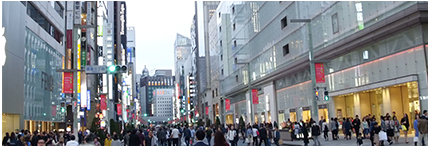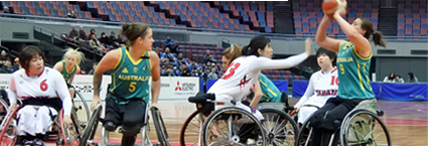REMEMBERING HIDEKI IRABU FINAL-PART II
Irabu was given a king’s welcome in New York. He was flown to the city in Yankee owner George Steinbrenner’s private jet and presented with the key to the city by NYC mayor Rudi Giuliani. Irabu’s baseball debut in America, July 10, 1997, at Yankee Stadium, was a memorable event in a Yankee history filled with memorable events. Before a weeknight audience of more than 50,000 fans, nearly one-third of whom were Japanese, and a morning television audience back in Japan of over 30 million, Irabu took the mound. Mixing a fast fastball in the high 90’s, with a sharply diving forkball in the low 90’s, he struck out nine in a 10-3 victory over the Detroit Tigers. When he was removed from the game with two out in the 7th inning, he was given a deafening ovation, one which lasted so loud and so long, that Irabu was pushed back onto the field by Yankee teammates for a curtain call. It was one of the high points of his career.
However, a string of bad outings followed, and he was shipped to the minor leagues for a time. He finished the year with a disappointing mark of 5-4 and an embarrassing ERA of 7.09. It was a pattern that would repeat itself. The next season he started off like Cy Young and by mid season was 8-4 with an ERA of 2.47, in the process winning the American League MLB Pitcher of the Month award for May. Over the first half of the season, he was arguably the best pitcher on the Yankees, a team, which would go on to win the World Series and one which many observers adjudged to be the greatest MLB squad of all time. But then he underwent another mystifying collapse to finish with a mark of 13-8 and an ERA of 4.06.
The next year he compiled a mark of 9-3 in the first four months of the year, and, in the process, was voted Pitcher of the Month for July, during which he put up a number of masterful performances, including a complete game shutout of the Detroit Tigers, 6-0 and another complete game victory over the Yankees arch rival, the Boston Red Sox, striking out 12 batters in a 13-3 triumph. Said Yankee catcher Jorge Posada at the time, “Irabu is probably the nastiest pitcher in the league.” But then Irabu collapsed again to finish with a record of 11-7 and an ERA of 4.84. The low point of his seasons was perhaps the night of August 9th in Oakland. Given an eight run lead by the second inning, he was pounded for six runs and eight hits before being removed from the game with two on and no out in the fifth inning, thus failing to qualify for the official victory in the score book. His failure to hold the A’s in check with such a big lead sent Yankees manager Joe Torre in an angry yelling fit that could be heard in the Oakland stands.
In both seasons, Yankee management had lost some much confidence in Irabu by the end of the year that they removed him from the playoff starting rotation.
His performances brought to mind the old nursery school rhyme, “When he was good he was very very good. But when he was bad, he was horrid.” Said Yankee pitching coach Mel Stottlemeyre, who tinkered with Irabu’s form, “When he was on he was one of the best pitchers I have ever seen. But when he was off, he was one of the worst.”
He could be sailing along with a shutout and then suddenly be touched for a home run or two off his 98 mile per hour fastball, a pitch that had been almost unhittable in Japan, and that would seem to unnerve him. He would then resort to throwing breaking ball pitches on the corners, which would result in a succession of walks, and he would find himself with the bases loaded, no out and his confidence sorely shaken.
His yo-yo inconsistency was baffling to the Yankee brain trust. Some speculated that Irabu could not adapt to the higher level of competition in the big leagues, especially in a highly competitive organization like the Yankees, whose bombastic owner George Steinbrenner demanded instant perfection. Others questioned his mental stability, but Irabu rebuffed suggestions he copy the Atlanta Braves ace John Smoltz and see a sports psychologist
Irabu’s personal behavior could be as erratic as his pitching He had always had trouble controlling his temper, as he would freely admit. Once after a bad outing for the Chiba Lotte Marines, he had kicked the dugout in anger and broken a big toe. In the United States, that temper revealed itself on more than one occasion. During one losing effort, he had spat in the direction of fans who were booing him, After another game in which he had pitched poorly, he smashed his fist into a Yankee Stadium clubhouse door. During his first full-fledged Yankee spring camp, he literally destroyed a hotel room in Tampa during a drunken rampage in which he had inadvertently hit his new bride Kyonsu (a girl from Chiba whom he had married during the Lotte-San Diego contretemps.) In Philadelphia, after being kayoed in the fourth inning, he flew into a rage and did considerable damage to the visitor’s dressing room.
Irabu consumed copious amounts of beer, which combined with a two-pack-day cigarette habit, did not help his physical condition. By his second spring training, Irabu had ballooned to 250 pounds by his second spring training, season and he was in poor physical condition. After failing to cover first base on a play during an exhibition game in Tampa—a mental lapse that Irabu later attributed to personal problems off the field, Yankee owner George Steinbrenner Steinbrenner called him a “fat pussy toad” to assembled reporters, a remark that made the sports headlines and became a part of New York sports lore. Irabu was so upset at this slight that he refused to board the Yankees private plane for the next game. His agent Nomura had to fly in to help sort things out and help calm his client down.
Then there were Irabu’s run-ins with the press, particularly the Japanese reporters who dogged him wherever he went. Irabu had blacklisted several writers and publications who had cast him as the villain during his struggle with the Padres, including one reporter who had written that the real reason Irabu refused to sign with the National League team was because his mother was of North Korean descent and the city of San Diego, as home to a major naval base, had figured significantly in military strikes against the Northern Korean Peninsula in the past. And he seemed to delight in tormenting the rest. He compared them to “locusts” and called them “Goldfish shit.” He broke a Japanese photographer’s video camera on one occasion and on another, hit a Japanese cameraman with a pitched ball during a bullpen session, smirking in satisfaction as the ball slammed in the man’s thigh and caused a huge welt, causing more negative headlines in the sports dailies back home.
He took issue with the American media as well, including New York Daily News columnist Mike Lupica wrote that Irabu was a “Big Baby,” and a New York Times reporter who had written delved into Irabu’s past and uncovered his mixed-race background. Irabu had been born to an Okinawan mother and an American serviceman who had subsequently returned to the States. He was subsequently raised by his mother and a stepfather in a rough and tumble, lower class section of Osaka. As a child, Irabu had, on occasion, been subjected to taunts over his slightly Western looks. During his time at Lotte, he had confided late one alcohol-fueled night to some sportswriters that he wanted, one day, to go to the U.S. and become so famous a ballplayer that his biological father could not help but notice. That quote had been reprinted in the Japanese press, much to Irabu’s chagrin. After that he had clammed up and refused to answer any more questions about his origins. He considered such intrusions an invasion of privacy and nobody’s business but his own. Thus, when the Times story appeared, he added the reporter to his blacklist.
Irabu’s temper tantrums alternated with bouts of depression in which he would hole up in his hotel room on the road, soothing himself with a favorite hobby, drawing pictures of the human anatomy, something he became quite good at, but closing himself off from the world. During games he did not pitch, he could often be seen by himself in the bullpen, a morose expression on his face.
His perceived attitude upset set many image conscious Japanese. Said a Japanese kitchen worker at Obata’s, a popular midtown Manhattan restaurant, “It’s all very embarrassing. He makes Japanese people look bad.” Back in Japan, commentators decried his lack of dignity, while Don Nomura’s opinionated mother went on nationwide television to declare “Irabu is the shame of Japan.”
Irabu’s defenders said that he had no more of a temper than Posada or Jeter, who have kicked their share of lockers, and was certainly far less combative than other players like, say, Carlos Zambrano. But because he was new and from far off Japan, and had come off a highly publicized battle with baseball’s powers that be on both sides of the Pacific, his behavior was more scrutinized in the media, especially the Japanese language media.
Irabu was reportedly well-liked in the Yankee clubhouse, despite the language barrier, ready with a smile and an off-color remark he had learned in English to make his teammates laugh. He tried to fit in and follow the customs of American baseball. He had joined in the first on-field brawl he had witnessed as a member of the Yankees, but because he had taken care to wrap his pitching hand in a towel, he inquired as to whether or his not his teammates had thought any less of him for having done that. He was assured they had not.
He was also capable of great generosity. He supported many charities and gave expensive gifts to people working in the Yankees front office and his interpreter, George Rose (whom he addressed respectfully as ‘sempai,”—a habit other players in the Yankee clubhouse picked up.) He paid off Rose’s post graduate loans out of his first world series check. He also got special permission to have a Yankees world series pendant reproduced , an expensive and exclusive item normally given only to family members, and presented it to Afterman who had gone on to become a Yankee executive, a team lawyer. “He was sweet,” she said, “He came to a barbecue at my house one time bringing a bottle of plum wine that he knew I liked but that was really hard to find. He’d looked all over Little Tokyo to find it. He did thoughtful things like that for others that never got reported—only the other stuff made the news.”
Nevertheless, by 2000, the Yankees had wearied of his inconsistency and shipped him off to Montreal, causing his former manager Bobby Valentine to remark, “He probably was in the wrong place to begin with. What he needed was a more sheltered environment. What he needed was not a ‘show me’ mode but a ‘help me’ mode.”
In Montreal, he underwent elbow and knee surgery, and won but two games in his two seasons, spending most of his time in the minors, where, among other things, he was suspended for getting drunk the night before a start. After that it was on to the Texas Rangers, where he had a brief shining spell as a late-inning relief pitcher before developing blood clots that put him in the hospital and ended his major league career.
One unreported highlight of his time in the big leagues was finally meeting his biological father, who like Ray Liotta in “Field of Dreams” had simply showed up one day at Yankee spring camp, bearing presents for Irabu’s wife and stuffed animals for his two young daughters.He had indeed heard of Hideki’s exploits with the Yankees and decided to try to connect with his son. He not exactly the John Wayne figure Hideki had imagined. He stood 5’8”, was of slight build and was living in Alasaka, working in the civil service. But Hideki was intrigued by the fact, relayed to him by his father, that his biological father had been physically big, and that he had played semi-pro baseball and that furthermore he had exactly the same birthdate as Hideki. That knowledge had pleased Hideki greatly.
Hideki’s father explained, through an interpreter, how he had come to meet Hideki’s mother, Kazue. He had been a GI stationed in Okinawa. One day he was walking down the street and he spotted a woman being assaulted by some man and he had intervened to rescue her. He and Kazue thus began a relationship that lasted about a year and culminated with her becoming pregnant. By that time, he was scheduled to be rotated back to the United States and he had offered to marry her, take her and the baby with him. But she had refused. She severed relations with him and decided to raise the child by herself. So he left and returned to the United States where he embarked on a career in the civil service. But he told Hideki, he always thought about the woman and the child he had left behind and was wracked with guilt about not having been a proper father. He said he wanted to make up for it in anyway he could. So the two, father and son, embarked on a relationship of sorts. The father spent a week in camp and then they had met a couple of times after that. But it was difficult to develop the relationship because of the language barrier, and it was unsatisfying trying to communicate through an interpreter. Hideki did not discuss his meetings with his father publicly and asked that his friends who knew about them, to keep them secret.
Said an acquaintance knew them both, “Hideki’s father was a nice guy. I met him at the airport in Los Angeles when Hideki was flying back to Japan and he had come to see Hideki off. He was standing off by himself, quietly. Hideki told me later that he liked his father because he was the one of the very few people who never asked him for money. A lot of people tried to worm their way into Hideki’s life, pretending to be his friend…some even pretending at first to be his father. But they just wanted his money. His real father was not like that at all.”
(Robert Whiting)
PHOTO from YouTube (BAL@NYY: Yankees great O’Neill remembers Irabu)






